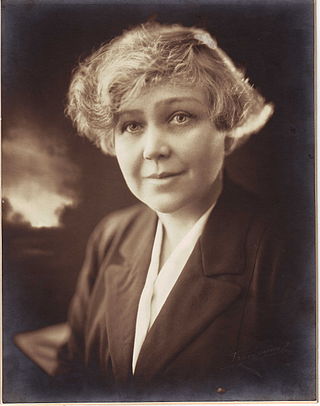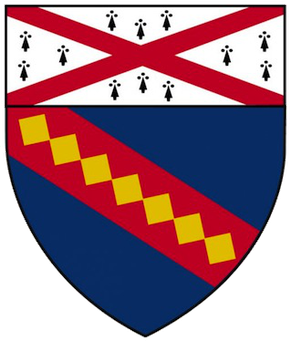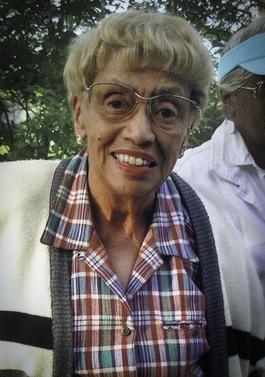
Sidney Altman was a Canadian-American molecular biologist, who was the Sterling Professor of Molecular, Cellular, and Developmental Biology and Chemistry at Yale University. In 1989, he shared the Nobel Prize in Chemistry with Thomas R. Cech for their work on the catalytic properties of RNA.

David Satcher, is an American physician, and public health administrator. He was a four-star admiral in the United States Public Health Service Commissioned Corps and served as the 10th Assistant Secretary for Health, and the 16th Surgeon General of the United States.

Jacqueline K. Barton, is an American chemist. She worked as a professor of chemistry at Hunter College (1980–82), and at Columbia University (1983–89) before joining the California Institute of Technology. In 1997 she became the Arthur and Marian Hanisch Memorial Professor of Chemistry and from 2009 to 2019, the Norman Davidson Leadership Chair of the Division of Chemistry and Chemical Engineering at Caltech. She currently is the John G. Kirkwood and Arthur A. Noyes Professor of Chemistry.

Helen Mary Mayo, was an Australian medical doctor and medical educator, born and raised in Adelaide. In 1896, she enrolled at the University of Adelaide, where she studied medicine. After graduating, Mayo spent two years working in infant health in England, Ireland and British India. She returned to Adelaide in 1906, starting a private practice and taking up positions at the Adelaide Children's Hospital and Adelaide Hospital.

The President's Council of Advisors on Science and Technology (PCAST) is a council, chartered in each administration with a broad mandate to advise the president of the United States on science and technology. The current PCAST was established by Executive Order 13226 on September 30, 2001, by George W. Bush, was re-chartered by Barack Obama's April 21, 2010, Executive Order 13539, by Donald Trump's October 22, 2019, Executive Order 13895, and by Joe Biden's February 1, 2021, Executive Order 14007.

The Yale School of Public Health (YSPH) was founded in 1915 by Charles-Edward Amory Winslow and is one of the oldest public health masters programs in the United States. It is consistently rated among the best schools of public health in the country, receiving recent rankings of 3rd for its doctoral program in epidemiology. YSPH is both a department within the school of medicine as well as an independent, CEPH-certified school of public health.

Evelynn Maxine Hammonds is an American feminist and scholar. She is the Barbara Gutmann Rosenkrantz Professor of the History of Science and Professor of African and African-American Studies at Harvard University, and former Dean of Harvard College. The intersections of race, gender, science and medicine are prominent research topics across her published works. Hammonds received degrees in engineering and physics. Before getting her PhD in the History of Science at Harvard, she was a computer programmer. She began her teaching career at the Massachusetts Institute of Technology, later moving to Harvard. In 2008, Hammonds was appointed dean, the first African-American and the first woman to head the college. She returned to full-time teaching in 2013.
Diana Chapman Walsh was President of Wellesley College from 1993 to 2007. During her tenure, the college revised its curriculum and expanded its programs in global education, internships and service learning, and interdisciplinary teaching and learning. The faculty established new majors in environmental studies, quantitative reasoning, cinema and media studies, neurosciences, and astrophysics. Japanese, Arabic and Korean languages were added to the curriculum as well, and a new department of East Asian Languages and Literatures was launched.
Marion Downs was an American audiologist and Professor Emerita at the University of Colorado Health Sciences Center, Denver, who pioneered universal newborn hearing screening in the early 1960s, then spent more than 30 years trying to convince her peers to adopt the testing in hospitals and to place hearing aids on infants who showed hearing loss. She worked to alert the medical world to the developmental problems associated with childhood deafness. As a result of her efforts, 95 percent of all newborns in America today are screened for hearing loss. She devoted her professional life to the promotion of early identification of hearing loss in newborns, infants, and young children and to helping deaf and hard of hearing individuals lead fulfilling lives.

Margaret Ann "Peggy" Hamburg is an American physician and public health administrator, who is serving as the chair of the board of the American Association for the Advancement of Science (AAAS) and co-chair of the InterAcademy Partnership (IAP). She served as the 21st Commissioner of the U.S. Food and Drug Administration from May 2009 to April 2015.

Linda Gay Griffith is an American biological engineer, and Professor of Biological Engineering and Mechanical Engineering at Massachusetts Institute of Technology, where she also directs the Center for Gynepathology Research.
Sue J. Goldie is the Roger Irving Lee Professor of Public Health, the Director of the Center for Health Decision Science, Director of the Global Health Education and Learning Incubator at Harvard University, and founding Faculty Director of the Harvard Global Health Institute. Goldie has a secondary appointment as Professor of Global Health and Social Medicine. Her professional agenda includes improving women's health in all parts of the world, using evidence-based policy to reduce global health inequities, building bridges between disciplines to tackle critical public health challenges, and fostering innovation in education.

Matilda White Riley was an American gerontologist who began working at Rutgers University as a research specialist before becoming a professor from 1950 to 1973. Here she wrote a textbook and discovered her interest in aging. In 1973, Riley became the first woman full professor at Bowdoin College, where she worked until 1981. She spent much of her career as a sociologist specializing in aging at the National Institute on Aging, part of the National Institutes of Health. Additionally, Riley worked with the Russell Sage Foundation from 1974 to 1977 where she wrote works on the age-stratification paradigm and aging society perspective.

Jewel Plummer Cobb was an American biologist, cancer researcher, professor, dean, and academic administrator. She contributed to the field of cancer research by studying the cure for melanoma. Cobb was an advocate for increasing the representation of women and students of color in universities, and she created programs to support students interested in pursuing graduate school.
Teresa Thomas "Terry" Fulmer, is the current president of The John A. Hartford Foundation. Earlier positions include distinguished professor and dean of the Bouvé College of Health Sciences at Northeastern University and dean of the College of Nursing at New York University. She is known for her extensive research in geriatrics and elder abuse. She has received funding from the National Institute on Aging, the National Institute of Nursing Research and other foundations for her research regarding elder abuse.
Barbara Ross-Lee, D.O. is an American physician, academic, and the first African-American woman to serve as dean of a U.S. medical school; she is also known as the sister of global music sensation Diana Ross along with being the aunt of actress Tracee Ellis Ross, and singer-songwriters Rhonda Ross Kendrick and Evan Ross. She majored in biology and chemistry at Wayne State University, graduating in 1965. Then, in 1969, she entered Michigan State University's College of Osteopathic Medicine. Ross-Lee then went on to open her own private family practice, teach as a professor, and hold other positions within the medical community. In 1993, she was elected as the first woman dean of a medical school, at Ohio University's Heritage College of Osteopathic Medicine. She has earned several awards and honors for her work and accomplishments.
Terri H. Finkel is an American pediatric rheumatologist and immunologist who is the Children's Foundation of Memphis Endowed Chair and tenured professor of pediatrics at the University of Tennessee Health Science Center and St. Jude Children's Research Hospital. Previously, she was the pediatrician-in-chief, chair of pediatrics and chief scientific officer at Nemours Children's Hospital. She is known for her research into autoimmunity, AIDS, juvenile rheumatoid arthritis, lupus, and cancer. Her work has been recognized in more than 200 publications, 10 U.S. patents, and 4 licensed technologies. Finkel has been placed in the top one percent of American pediatric rheumatologists by U.S. News & World Report. Her numerous honors include being named among America's Top Doctors by Castle Connolly every year since 2011 and induction into the Colorado Women's Hall of Fame in 1996.
Valerie Ellen Stone is an American physician who is a professor of medicine at the Harvard Medical School. She serves as Vice Chair for Diversity, Equity, and Inclusion, Department of Medicine, Brigham and Women's Hospital. She specializes in the management of HIV/AIDS, health disparities and improving the quality of medical education.
Helen L. Smits was a health policy influencer and advocate in the United States, and lent her voice to several healthcare initiatives abroad. Most notably, she was a recipient of the Fulbright scholarship and served under the Carter and Clinton administrations. She also held positions in government organizations including the National Institutes of Health (NIH) and Healthcare Financing Administration.
Michelle Marie Mello is an American empirical health law scholar. She is a Full Professor of Law at Stanford Law School and a Full Professor of Health Policy in the Department of Health Policy at Stanford University School of Medicine. In 2013, Mello was elected a member of the Institute of Medicine.











